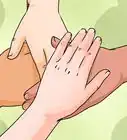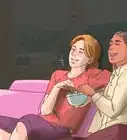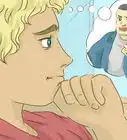This article was co-authored by Deb Schneider, LCSW, PPSC. Deb Schneider is a Licensed Clinical Social Worker in private practice in Oakland, CA, and a Program Manager for the Weiland Health Initiative at Stanford University. With over 15 years of experience, she specializes in creating safe spaces, respectful of marginalized identities, at the high school and college levels. Deb holds a Bachelor’s degree in Sociology and Women's Studies from Clark University and a Master of Social Work (MSW) with Health Concentration from the University of California, Berkeley School of Social Welfare.
This article has been viewed 12,550 times.
Have you ever felt alone on the journey of accepting that you're gay at a young age? It's hard for a lot of kids who are gay to accept their sexual orientation, and many don't know how to handle it, but there are fortunately steps you can take to make the process a little easier. In this article, you will learn how to accept being gay at a young age. This article is aimed towards kids aged 10 to 13.
Things You Should Know
- Be proud of the fact that you’re gay and don’t let anyone put you down for the way you are; it’s beautiful to know who you are and live your truth, so don’t feel bad!
- A lot of gay people find coming out to be liberating and freeing, but it’s totally up to you when (and even if) you do this—you don’t have to do anything right now if you’re still processing this.
- If you feel alone right now, consider talking to your most-trusted and most-accepting friend about what you’re experiencing; it can be hard to talk to a parent about your sexuality, but it may help you feel better if you talk about it out loud with someone!
- It’s totally okay to take your time figuring out how you feel (some people spend years exploring their sexuality) and it’s alright if you don’t feel 100% confident about your sexuality right now.
- Remember, your sexuality is only one part of what makes you you, and you are under no obligation to change anything about the way you live your life if you don’t want to!
Steps
Finding Out You're Gay
-
1Start questioning your sexuality. This step can be crucial in finding out if you're gay. To question, you can try thinking about whether you would feel more comfortable dating the same gender or opposite gender. Looking back at your school crushes could also help, but current school crushes would help you more. A crush you had in 1st grade wouldn't really be the same as when you're in 6th grade, but may help.
-
2Try getting experience. While this sounds awkward, it could help. Maybe, if you find another friend of yours experimenting with their sexuality, you could go on a "date" with them and see how it goes. Another way to experiment is to imagine scenarios where you are dating someone of a gender you're attracted to.Advertisement
-
3Find information on YouTube. Nowadays, there are a lot of LGBTQ YouTube channels. Check out channels like Team2Moms. Their channel is very informative about the LGBTQ+ community and is also kid-friendly. There are also a lot of comedic gay channels, such as MacDoesIt. These channels could help you understand the gay community better.
-
4Understand that you may relate to other types of sexuality.
- Keep in mind that if you aren't sure that you're gay, you may relate to another sexuality. Here is a list of well-known sexualities.
- Straight: You are sexually attracted to the opposite gender
- Gay: You are sexually attracted to the same gender
- Bisexual: You are sexually attracted to two genders
- Asexual: You are not sexually attracted to anyone
- Bi-curious: Interested in experimenting with different genders, but not sure if they would date two genders
- Pansexual: You are attracted to all genders equally, including men, women, and nonbinary people.
- Keep in mind that if you aren't sure that you're gay, you may relate to another sexuality. Here is a list of well-known sexualities.
Accepting You're Gay
-
1Understand that being gay is okay .While it may seem like there is a lot of hate surrounding the LGBTQ+ community, it's not that bad. Try not to avoid with homophobic people. If you have homophobic parents, then you should check out Deal With Homophobic Parents. If you're in a homophobic community, you shouldn't come out yet, but you should accept yourself. Support yourself, and if others can help, let them.
-
2Go to a therapist if you need to. Since you may be confused or scared, you can go to a school therapist to help deal with your feeling of being gay. The therapist can help you on coming out, understanding your feelings, and can connect you with the LGBTQ+ community in general.[1]
-
3Come out to friends. As you may not feel comfortable coming out to your parents quite yet, you can come out to your friends. They can be easier to tell. If they don't accept you then you can seek out more accepting peers. By telling your friends your feelings, they will understand you further and help you.
-
4Come out to your parents. Many kids are afraid of telling their parents that they are gay. The process of planning to come out to your parents can vary from telling them on the spot to waiting several weeks. There are a lot of ways to come out to your parents, but talking to them is probably the easiest and most effective way. A lot of parents accept their kids, so most likely (and hopefully) your parents will accept you.
Taking Part in Activities
-
1Join LGBTQ communities online. Joining LGBTQ+ support groups online could help you feel accepted and talk to others about being LGBTQ if you have questions.[2]
-
2Befriend other LGBTQ kids at your school and hobbies.[3]
- You can become friends with gay kids at your school for potential love interests and/or support. It would be nice to know gay kids at your school, so that you know that you are not alone at your school.
-
3Consider dating. If you feel romantic feelings towards a same-gender person, who has come out, maybe you can date. Do not get into a serious relationship, but you can have fun "dates" together, having someone to be with who understands you. It would be fun to have a relationship with a friend.
-
4Show pride. You can do this by making things such as a gay flag blanket, a gay flag cake, or attending your local pride parade on pride month. If you feel uncomfortable attending the parade, being younger than most people there, that is entirely your choice. You can also show pride by doing things like taking a selfie with your partner, for example.
-
5Join a youth group. If you are young and in the LGBT community, joining a group can help. If you're out to one of your parents you can join one. Most middle schools have a group, but an LGBT community center has them too.
Community Q&A
-
QuestionWhat should I do if my best friend says she is not gay and obviously is?
 NicoTop AnswererYou can never know for sure if someone is gay, and it's not a good idea to 'guess' whether they are gay or not, because if you do, you're relying on stereotypes to find out. You should just politely ask your friend if they are part of the LGBTQ community.
NicoTop AnswererYou can never know for sure if someone is gay, and it's not a good idea to 'guess' whether they are gay or not, because if you do, you're relying on stereotypes to find out. You should just politely ask your friend if they are part of the LGBTQ community. -
QuestionAre there any LGBTQ+ online groups that you could suggest?
 NicoTop AnswererSome good groups and forums for LGBTQ youth are TrevorSpace, Empty Closets, and Q Chat Space. They are all safe and verified for ages 13-24.
NicoTop AnswererSome good groups and forums for LGBTQ youth are TrevorSpace, Empty Closets, and Q Chat Space. They are all safe and verified for ages 13-24.
Warnings
- If your parents aren't accepting of the LGBTQ+ community, you shouldn't date at this time.⧼thumbs_response⧽
- Don't online date. It can be dangerous regardless of your sexual orientation. You should find kids from your school or other areas in real life to date.⧼thumbs_response⧽
- Don't try to come out if you're in a very discriminating household. You should try to search the internet, friends or a therapist for advice.⧼thumbs_response⧽
- Be careful who you share your sexual orientation with. Rumors could spread and you may become a target for bullies.⧼thumbs_response⧽
-Step-1-Version-2.webp)
-Step-2-Version-2.webp)
-Step-3-Version-2.webp)
-Step-4.webp)
-Step-5-Version-2.webp)
-Step-6-Version-2.webp)
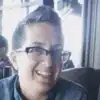
-Step-7.webp)
-Step-8-Version-2.webp)
-Step-9.webp)
-Step-10-Version-2.webp)
-Step-11-Version-2.webp)
-Step-12-Version-2.webp)
-Step-13-Version-2.webp)
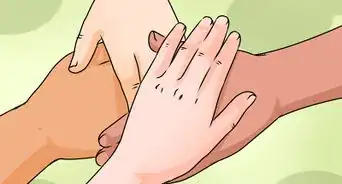
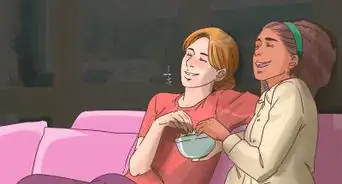
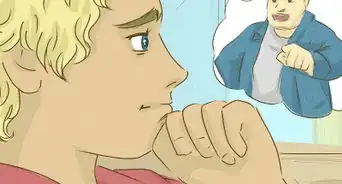

-Step-20.webp)

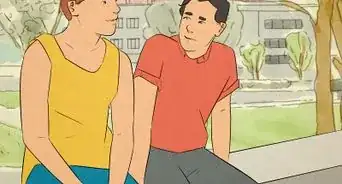
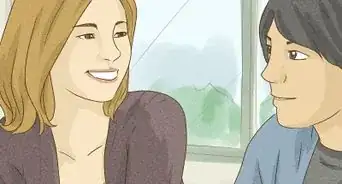
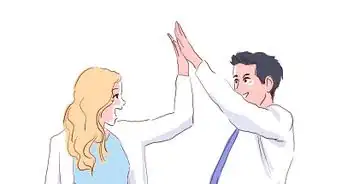
-Step-14-Version-2.webp)
-Step-16.webp)









